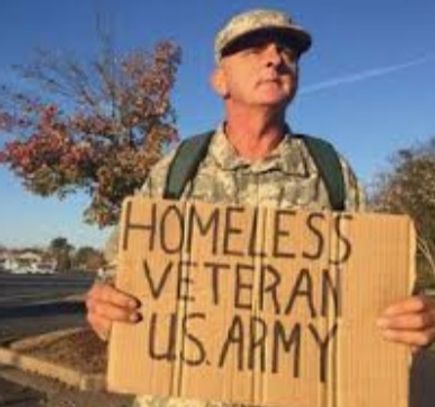Dental Hygiene SHUTTLE BUS
BEFORE AND AFTER











OUR MOBILE DENTAL HYGIENE CLINIC
oUR COMMUNITY PARTNERS










COLORADO'S CW2 "gREAT DAY COLORADO" LIVE
Rocky Mountain PBS Video
9 News Story
Mission Trip 2019 Mayreau
Mayreau is the smallest inhabited island of the Grenadines, with an area of 0.46 sq. miles and a population of about 271 people. The locals were treated with preventative and therapeutic dental care. There is no dentist on the island and the medical doctor comes once a month. All of the children on the island had severe tooth decay due to the consumption of fruits, juices and lack of brushing everyday.
.
Dental Mission Trip 2019. Island of Mayreau














Veterans Experiencing Homelessness

Did you know that a veteran must be disabled or retired to receive dental care though the VA?
Veterans who meet that requirement need to travel a great distance to their local VA clinic.
Many veterans are in wheelchairs, have lost their limbs, or do not have enough money to even ride the local bus to the VA clinic.
Veterans need easier access to dental care other than just at the VA. Our mobile dental service delivers the quality care they deserve directly where they reside.
Who We Serve
Older Adults
Temporary Housing Shelters
Older Adults

Many older adults in long term care facilities suffer from cognitive decline or Parkinson's disease. Most of our older adult patients have their natural teeth, but do not have regular brushing habits due to memory loss, nervous system decline and lack of motor function. Studies show that many older adults living in nursing homes pass away each year due to oral bacteria aspirated into their lungs causing pneumonia.
Children
Temporary Housing Shelters
Older Adults

Small children of unhoused parents do not have access to good oral care due to their living situation. Some families live in shelters and others in the family car. Daily brushing habits are not achievable without running water or a private sink to store a toothbrush.
Temporary Housing Shelters
Temporary Housing Shelters
Temporary Housing Shelters

Our male patients experiencing homelessness are hard working men that can't make ends meet to pay for housing. Many have become homeless after suffering an injury at work with no medical insurance, a single income family that suddenly experiences job loss, divorce, child support payments, release from prison with no where else to turn, or a drug addiction that started from an injury medicated with opioids.
Domestic Violence
Domestic Violence
Temporary Housing Shelters

Many of our female patients are escaping an abusive lifestyle. They are " in hiding" at the shelter. Even though dental care is desperately needed, finding a dental office is the last thing on their minds. Barriers to care are transportation, child care, fear of leaving the shelter, and a fear of lying in a vulnerable position next to a male dental provider. Our all female staff eliminate the barriers to care by providing our services in the safe space of the shelter.
Runaway Youth
Domestic Violence
Pregnant Teens

Runaway youth no longer have parental guidance and have little experience living independently. They no longer have anyone to remind them the importance of a 6 month cleaning and check up, or to remember to brush and floss everyday. Many youth living on the streets and in shelters because they have aged out of foster care, have been sexually abused, have untreated mental illness, or have turned to drugs. Several of our runaway youth patients have trust issues. It is comforting for them to receive dental care in a space where they hang out each day. Our runaway youth tell us they are afraid, embarrassed, couldn't afford it or just didn't know how to get a dental appointment.
Pregnant Teens
Domestic Violence
Pregnant Teens

Some of the pregnant teens we serve have been abandoned by their parents or have escaped an abusive living situation.
Luckily, most have made it into supportive housing for teen moms that provide GED services, teach life skills, and welcome our dental services on a regular basis.
There is a systemic link between gingivitis and low birth weight preterm babies and a high rate of baby bottle tooth decay for babies of young moms. When a baby is given milk or juice at bedtime, the sugar and low PH causes baby bottle tooth decay. If not prevented through education or stopped early with SDF treatment, the damage to the child's teeth is devastating. Many cases involve sedating the child for extensive dental work to repair the damage and dental infection.
Developmentally Disabled
Developmentally Disabled
Developmentally Disabled

Our developmentally disabled patients and caregivers struggle with compliance and willingness to provide daily oral care. Some patients resist dental offices out of fear or are unable to leave the home. We bring our care to the patient so they can remain in their comfort zone.
Spinal Cord Injury
Developmentally Disabled
Developmentally Disabled

Our patients with spinal cord injuries require home dental visits due to lack of mobility, transportation, and body temperature control. Most of our patients have tracheotomies with ventilators. Due to the inability to use their hands for brushing, the oral bacteria builds fast and can be aspirated into their breathing tube causing pneumonia
Transgender Homeless
Developmentally Disabled
Transgender Homeless

Our LGBTQIA patients experiencing homelessness struggle with several barriers receiving dental and medical care. In addition to the fear of being judged, individuals are concern that traditional dental offices will misgender them.
We use pronouns providing inclusivity. We serve and never judge. Bringing dental care inside facilities allows for LGBTQIA individuals to receive compassionate and quality dental care in a safe and comfortable environment
photo gallery
Contact Us
Deserving Dental Org
Mailing only: 2205 W. 136TH AVE suite 106- 159 Broomfield, CO 80023 US



















.jpg/:/rs=w:370,cg:true,m)